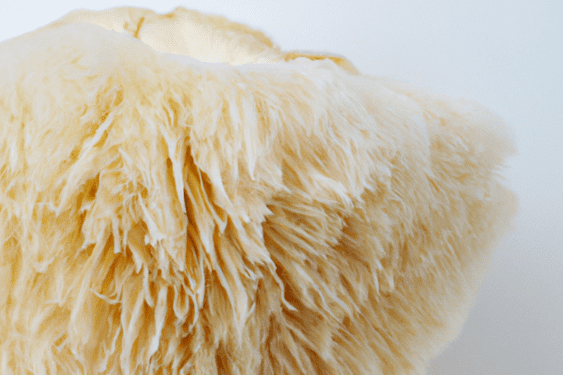Does Lion’s Mane Increase Testosterone?
- Nagano Tonic Reviews: The Ultimate Japanese Elixir for Weight Loss and Vitality - November 15, 2024
- Quietum Plus: The Natural Solution for Ear Health & Peaceful Living - February 19, 2024
- Sugar Defender Review – Does This Supplement Help Manage Blood Sugar? - February 16, 2024
This article provides an overview of the current scientific understanding of the potential effects of lion’s mane on testosterone levels.
Lion’s mane, a type of edible mushroom, has been traditionally used in Asian cuisine and medicine for its supposed health benefits. However, there is currently limited scientific research on the effects on testosterone levels.
One study conducted on mice found that a compound found in lion’s mane, called hericystin, may have the potential to increase testosterone levels. However, it is important to note that this study was conducted on mice and it is not clear if the same effects would be seen in humans.
Study on humans found that supplementing with lion’s mane for 4 weeks did not have any significant effect on testosterone levels.
It is important to note that more research is needed to fully understand the effects of lion’s mane on testosterone levels in humans. Until more studies are conducted, it cannot be definitively stated that lion’s mane increases testosterone.
But Lion’s mane have many other benefits and uses which have been studied and documented.
Lion’s Mane Mushroom Benefits
One of the most promising benefits of this mushroom is its potential to improve cognitive function. Studies have found that compounds found in lion’s mane mushroom, such as hericystin, may have neuroprotective effects and may be able to improve memory and cognitive function.
It has been found to have anti-inflammatory and antioxidant properties, which may be beneficial for overall health and in the prevention of certain chronic diseases.
Studies have found that lion’s mane mushroom may be able to reduce inflammation in the gut and in other parts of the body. And it has also been found to have positive effects on the cardiovascular system.
The immune system may potentially benefit from lion’s mane mushrooms. It has a significant amount of beta-glucans, a type of carbohydrate that helps support immune system development.
Also being researched is the mushroom’s possible impact on nerve repair and regeneration.
According to studies, the lion’s mane mushroom contains substances that may be able to stimulate the formation of nerve cells, which may be helpful for treating ailments like nerve injury or neurodegenerative diseases.
Lion’s Mane FAQ

Does lion’s mane affect hormones?
While some studies have found that compounds found in lion’s mane may have an impact on hormone levels, these have mostly been conducted on animals and more research is needed to understand if these effects can be replicated in humans.
From my studies and review of literature, I can say that there is no conclusive evidence to suggest that it has any direct impact on hormones in humans, however, more research is needed to fully understand the effects of lion’s mane on hormones
Is mushroom good for testosterone?
Mushrooms, in general, have been traditionally used in Asian medicine for their potential health benefits, but there is limited scientific research on the effects of mushrooms on testosterone levels specifically.
Some studies have found that certain compounds found in mushrooms, such as hericystin found in lion’s mane mushroom, may have the potential to increase testosterone levels. However, these studies have been conducted mainly on animals and more research is needed to confirm these effects in humans.
Does Lions Mane increase dopamine?
Studies have shown that the lion’s mane mushroom may have the ability to raise dopamine levels, and it has long been utilised in Asian medicine for its possible health advantages. A neurotransmitter called dopamine is involved in controlling reward, motivation, and mood.
According to a study done on mice, increasing dopamine levels in the brain by taking a supplement containing an extract from the fungus could have positive effects on mood and cognitive function.
Another human study discovered that taking the supplements for 16 weeks reduced mild cognitive impairment, which is linked to a rise in dopamine levels in the brain.
Does Lions Mane Cause Hair Loss?
At this time, there is no scientific proof that the mushroom can result in hair loss.
In fact, some research suggests that substances present in the lion’s mane mushroom may be advantageous for hair development.
For instance, a study done on mice revealed that treatment with hericystin, a substance found in the lion’s mane mushroom, boosted the mice’s number of hair follicles and enhanced hair development.
It’s crucial to remember that various factors, like as genetics, hormone imbalances, and certain medical disorders, can contribute to hair loss. It’s crucial to speak with a healthcare provider if you’re losing your hair in order to identify the underlying cause and the best course of action.
Lion’s Mane Side Effects
When used as a food in moderation, the lion’s mane mushroom is generally regarded as harmless, but excessive consumption or supplementation can have negative side effects.
Some of the potential side effects of consuming lion’s mane mushroom include:
- Digestive issues such as stomach upset, bloating, and gas
- Allergic reactions such as itching, rash, and difficulty breathing in rare cases
- Headaches
- Dizziness
- Insomnia
Does Lion’s Mane Lower Blood Pressure?
There is limited research on the effects of lion’s mane mushroom on blood pressure specifically. Some studies have found that compounds found in mushroom may have the potential to affect blood pressure, but these studies have been conducted mainly on animals and more research is needed to understand if these effects can be replicated in humans.
One study conducted on rats found that treatment with an extract of lion’s mane mushroom reduced blood pressure and improved heart function. However, it is important to note that this study did not measure blood pressure directly and more research is needed to confirm these findings.
Lion’s Mane Study On Diabetic Rats
In this study, researchers aimed to investigate the effects of an aqueous extract of Hericium erinaceus, also known as lion’s mane mushroom, on blood sugar and lipid levels in rats with diabetes.
They induced diabetes in rats by administering a chemical called streptozotocin and then treated the rats with different doses of the mushroom extract for 28 days. They measured the levels of glucose, insulin, and lipids in the rats’ blood and also evaluated markers of oxidative stress in the liver.
The results of the study showed that treatment with the lion’s mane extract for 28 days led to a significant decrease in blood sugar levels and a significant increase in insulin levels in the diabetic rats. The extract also improved lipid levels and increased antioxidant activity in the liver. Additionally, the study found that the extract decreased the levels of a marker of oxidative stress called MDA in the liver.
These results suggest that extract may have potential benefits for blood sugar and lipid control in diabetes. However, it is important to note that this study was conducted in rats, and more research is needed to confirm these effects in humans.
Supplements to increase testosterone:
- Testogen Review- The Ugly truth about Testogen!
- Testoprime Review: Is it The Best Way To Boost Your Testosterone Levels?
- Testo Max Review- Is it all hype or the real deal?


